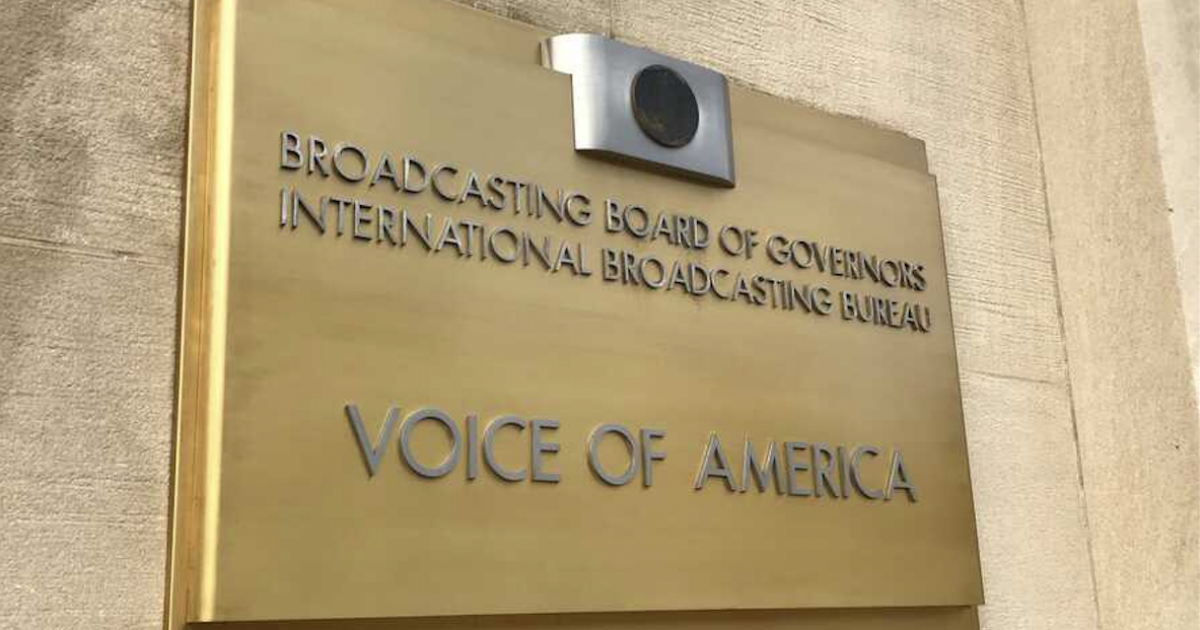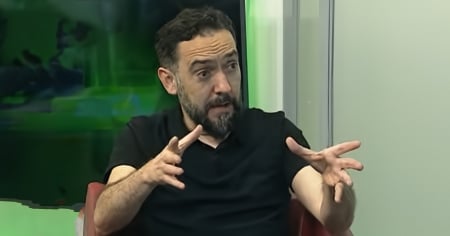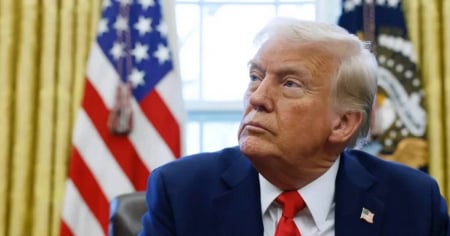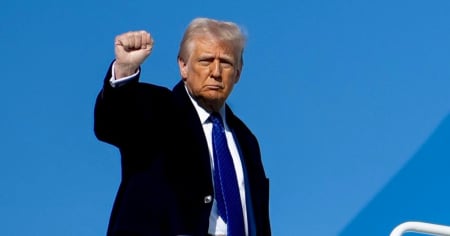
Related videos:
After last Friday, when the President of the United States, Donald Trump, signed an executive order that significantly reduces the operations of Voice of America (VOA) and other government-funded media organizations, these have been placed in a state of minimum operation required by law.
This decision has resulted in the administrative paid leave for more than 1,300 VOA employees, effectively silencing the 83-year-old institution known for promoting freedom and democracy worldwide, reported the AP agency.
The order also affects other key networks such as Radio Free Europe/Radio Liberty, Radio Free Asia, and Radio Martí, which have been instrumental in the fight against authoritarianism.
Critics, including Reporters Without Borders and leaders of these networks, condemn the measure, viewing it as a deviation from the role of the United States as a defender of free information, the agency EFE reminded.
The Trump administration justifies the measure as a effort to reduce the size of the federal government and criticizes recent editorial decisions of VOA, accusing it of leftist bias.
However, VOA employees, such as Pentagon correspondent Carla Babb, express concern about being silenced during this indefinite leave, highlighting that this action could be welcomed by authoritarian regimes that VOA has challenged with its independent journalism.
Furthermore, the administration has appointed Kari Lake, a loyal supporter of the Make America Great Again (MAGA) movement and former news presenter who lost twice in state elections in Arizona, as a special advisor to the United States Agency for Global Media (USAGM), the entity that oversees VOA.
This appointment has generated criticism and concerns about the potential politicization of government-funded media.
On Sunday, it was also reported that all contractors of the Office of Cuba Broadcasting (Radio y TV Martí) received an email informing them that they must cease their work immediately.
The news was confirmed by journalist Roberto Céspedes, who worked for USAGM and added that those employees will also not be allowed to access the agency's facilities or systems.
The termination will take effect on March 31 at 11:59 pm, Céspedes indicated.
The decision to dismantle VOA and other government-funded media organizations has been met with concern from press freedom advocates, who argue that this action undermines the ability of the United States to promote democracy and provide objective information worldwide.
Frequently Asked Questions about the mass layoffs at Voice of America and Radio and TV Martí
Why has the Trump administration begun mass layoffs at Voice of America?
The Trump administration has begun massive layoffs at Voice of America (VOA) as part of an executive order to reduce the size of the federal government. According to the administration, the measure aims to eliminate non-statutory components and functions of the U.S. Agency for Global Media (USAGM), accusing VOA of leftist bias and misuse of public resources.
What impact does the closure of Radio and TV Martí have in Cuba?
The shutdown of Radio and TV Martí could have a significant impact on Cuba, as these media outlets have been a vital source of information for Cubans, denouncing abuses by the regime and promoting democracy. The Cuban American National Foundation (FNCA) warns that their closure would benefit the Cuban regime, which has sought to silence these voices for years.
What accusations is the United States Agency for Global Media (USAGM) facing?
The USAGM faces serious accusations of national security violations, corruption, and misuse of public funds. Reports have surfaced regarding the infiltration of spies and sympathizers of terrorists, as well as exorbitant spending on contracts and agreements that do not benefit American taxpayers.
How has the international community reacted to the layoffs at VOA and Radio Martí?
The international community, including press freedom advocates such as Reporters Without Borders, has criticized the measure, arguing that it undermines the ability of the United States to promote democracy and provide objective information worldwide. These actions are seen as weakening the role of the U.S. as a defender of free information.
Filed under:





